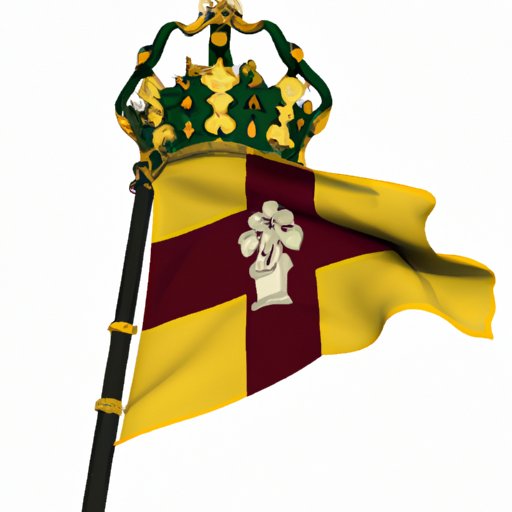Introduction
The relationship between Ireland and the British monarchy has always been a complex one, shaped by centuries of colonization, violence, and struggle for independence. At the heart of this relationship is the question of Irish identity and what it means to be part of a country that has been historically oppressed by a more powerful neighbor. Today, Ireland stands as an independent republic with a proud cultural heritage and a strong sense of national identity. But why do Irish people still hold such strong anti-monarchist sentiment, and what are the factors that contribute to it?
Through historical, political, cultural, economic, religious, and personal lenses, we can begin to answer these questions and better understand the relationship between Ireland and the monarchy.
Historical Context
The history of British colonization of Ireland dates back to the 12th century, with English and Scottish settlers establishing a presence on the island. This presence was marked by violence and oppression, with the English government imposing stringent laws and restrictions on the Irish Catholic population.
Resistance to British rule was a constant feature of Irish history, and numerous uprisings and rebellions took place over the centuries, culminating in the Easter Rising of 1916 and the subsequent War of Independence.
Today, the legacy of this history is still felt in Ireland, particularly in the North, where sectarian violence has shaped the region for generations. It is not surprising that many Irish people feel a sense of resentment towards British institutions like the monarchy.
Political Framing
Irish nationalism and republicanism are at odds with the British monarchy and its symbols. Nationalism is the general belief that a nation has a right to self-determination and independence, while republicanism refers to the desire for a form of government in which power comes from the people, not a monarch.
Both nationalism and republicanism have played a significant role in Irish history, with leaders like Michael Collins and Eamon de Valera fighting for Irish independence and sovereignty. Today, many Irish political leaders and movements still see the monarchy as a symbol of British imperialism and oppression.
The Good Friday Agreement of 1998 officially recognized the legitimacy of both nationalist and unionist aspirations in Northern Ireland, but the question of Irish reunification and the role of the monarchy remains a contentious issue.
Cultural Critique
Irish and British identity have always been distinct, with Ireland having its own unique culture, language, and traditions. For Irish people, this sense of identity is often rooted in a history of struggle against the British, and the monarchy represents a continuation of that oppressive legacy.
Irish culture has also produced many distinctive achievements and traditions, such as the Irish language, literature, music, and sports. These achievements are often celebrated as part of a distinct Irish identity, separate from the culture of Britain.
Economic Analysis
The British monarchy represents wealth and privilege in a way that is contradictory to the values of many Irish people. Ireland has a complicated economic history, with centuries of British rule leading to mass poverty and emigration.
Today, the economic disparity between Ireland and Britain is still significant, with Ireland remaining largely excluded from the British political and economic system. This makes the monarchy, which represents the epitome of British wealth and privilege, an even more difficult symbol for Irish people.
Religious Perspective
The largely Catholic Irish population has historically resisted the Church of England, of which the monarchy is an important symbol. The religious divide in Ireland was a major factor in the sectarian violence that plagued the North for decades, and Irish Catholics often feel that the monarchy represents a Protestant, Anglo-Saxon dominance over their country and culture.
Specific instances of conflict between the monarchy and the Catholic Church include the coronation of Queen Elizabeth II in 1953, which was protested by the Archbishop of Dublin, and the role of the Church of England in legislation concerning abortion and divorce.
Personal Narratives
To truly understand anti-monarchist sentiment in Ireland, it is important to listen to the personal narratives of individual Irish people. Many Irish people see themselves as having a unique cultural identity that is separate from the British, and the monarchy represents an affront to that identity.
Others see the monarchy as a symbol of economic and political inequality, with a privileged elite living off the backs of working-class people in both Britain and Ireland. Still, others see the monarchy as an outdated institution that has no place in modern society.
Conclusion
The relationship between Ireland and the monarchy is a complex one, shaped by history, politics, culture, economics, religion, and personal experience. While Irish people have many reasons to dislike the monarchy, it is important to remember that not all Irish people share this sentiment, and that there are many British people who are opposed to the monarchy as well.
Ultimately, the question of the monarchy’s role in Ireland is one that requires continued dialogue and discussion. Whether through political negotiations, cultural exchange, or economic cooperation, there are ways forward for those seeking to address this issue and promote a more equitable, just, and peaceful relationship between Ireland and the British monarchy.
